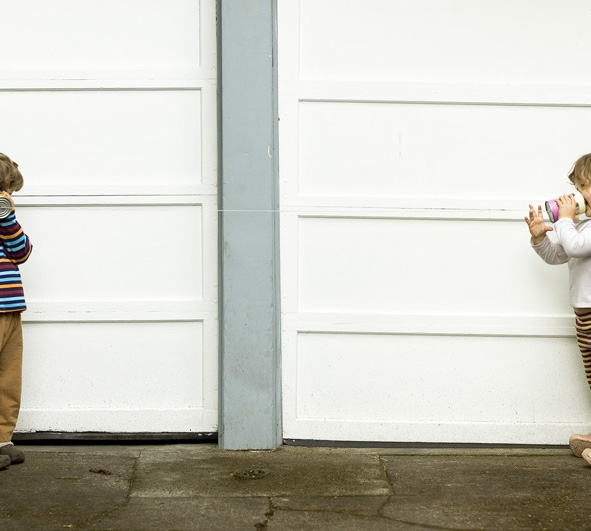
10 Super-practical ways to listen so your kids and teens talk (Pt 5)
Of course you love your kids. But how you express this love makes all the difference between them feeling loved or not. The same goes with listening. Of course we all listen to our kids. Of course we know how to listen – we think. But what if the way we listen has always been impaired? What if the way we listen doesn’t translate into kids who feel heard and really loved? What if the way we listen is in fact straining our bond and setting our kids up to talk (really talk) less and less?
As a self-professed listening-impaired dude that also happens to be a dad, I’ve been on a journey of trying to upgrade my hearing to make sure those around me (especially my wife and kids) feel heard.
This is my fifth, final, most important and longest post on listening to kids. I’ve already exposed my listening ineptitude. I’ve listed why learning to listen is so crucial. I’ve suggested ten things kids say that we should listen out for. And on a lighter note, I shared a method for capturing the awesome things our kids sometimes say. But now for the all-important ‘how’
1. Listen when they ask you to.
The other day, Fynn (aged 5) just seemed unnecessarily obstinate. Brush your teeth, I commanded. ‘No, I want mommy to help me.’ No Fynn, mommy can’t, I’ll help you! ‘No, mommy must!’ No, mommy can’t – she’s busy. ‘No, mommy must – please daddy.’ No I will – mommy is busy! This went on for about a minute, each round the ante went up.
Then he broke the deadlock. ‘But daddy, you say the big people must also listen to the little people! Listen to me now please!’ He had my attention. So I tried to attend instead of just assert. Why do you want mommy to help Fynn? ‘Cos I miss mommy.’
Ah. This wasn’t just your textbook clash of wills. Here was a boy who wasn’t really looking for trouble. Just an extra cuddle from his mom. Fortunately, he asked me to listen, and this time, I really did. After slightly adjusting our nighttime routine to include a few extra minutes with his mom, our boy was back to himself.
2. Listen with full attention.
When they come to you with something that’s important to them, stop what you’re doing. Adele Faber in How to talk so kids will listen and listen so kids will talk helps us see it from the child’s perspective: ‘It can be discouraging to try to get through to someone who gives only lip service to listening, or who half-listens. It’s much easier to tell your troubles to a parent who is really listening. They don’t even have to say anything – often a sympathetic silence is all you need.’
Nothing beats eye contact, according to Rob Parsons in The sixty minute family: ‘When kids are small, cup your hands under their chin and look into their eyes when they’re trying to tell you something that is really important to them. You also need to make extra time for them, as they struggle to articulate their thoughts.’
The key to attention is that you actually care, says Dr Les and Leslie Parrot in The parent you want to be: ‘Care is so essential to a good conversation, that it often goes unnoticed. When care is gone, the conversation is over. So if you want to talk so your kids will listen, you must be sure your heart is in the conversation. Why? Because if you don’t really care, if you are distracted or disinterested, your kids won’t care either.’
They’re so right. If you want your kid’s heart, you need to give them yours – and you do this by bending your ear toward them.
3. Listen without interrupting.
Stephen Covey in 7 Habits of highly effective people says, ‘Listen without interruption. Most people do not listen with the intent to understand, but with the intent to reply’.
In her novel Just Listen, teenager author Sarah Dessen tells how a good listener has a way of drawing words out of you: ‘This is the problem with dealing with someone who is actually a good listener. They don’t jump in on your sentences, saving you from actually finishing them, or talk over you, allowing what you do manage to get out to be lost or altered in transit. Instead, they wait, so you have to keep going.’
Faber advises we bite our tongue: ‘It’s hard for a child to think clearly or constructively when someone is questioning, blaming, or advising her. There’s a lot of help to be had from a simple ‘Oh … umm … I see’. Words like these, coupled with a caring attitude, are invitations to a child to explore her own thoughts and feelings, and possibly come up with her own solutions.’
4. Listen without fixing.
It turns out the very thing my wife has (for so long) been trying to teach me applies to parenting too: when a person tells you their problems, most times they don’t want you to fix them – they’re hoping you listen non-judgmentally and with sincere care.
I remember Eli crying from a hurt finger. I wanted to give the boy some perspective: ‘Eli, pain makes you strong.’ I’ll never forget his tearful response, ‘No daddy, pain makes you sore.’
Most of us dudes suck at this. We don’t want to just listen to problems, we want to fix them. But if there’s hope for Modern Family’s Phil Dunphy there’s hope for us all.
Sure, sometimes we will get onto giving advice, but first make sure they feel like a person you care for, not a problem you solve. Besides, it’s usually more empowering to hold back your advice anyway and ask, ‘What are you going to do about it?’
5. Listen without demanding.
This is especially true of how to listen to teens. When your kids don’t want to talk, you can’t force them. Gail Saltz, psychoanalyst and author encourages us to give our kids some space: ‘When your child begins answering you with one syllable answers, take a step back. Ask them what they are feeling, which will hopefully help them reflect on why they are giving one syllable answers. Then say, ‘I’d like to talk about it, but if you feel you cannot at this moment, we can talk again in a couple of hours or tomorrow.’’
Parsons makes a similar point: ‘Kids won’t always talk. When my son Lloyd turned 13, he suddenly became incredibly uncommunicative. I began to grieve the loss of the boy who followed me around telling me about his day. But soon enough he warmed up to us once again. Normally with teens the problem passes. My advice to parents: listen when they talk because they won’t always talk.’
6. Listen with analysis.
Little kids have no way of communicating their negative emotions, except through bad behavior. So when they start acting up – attacking other kids, flagrantly disobeying, screaming, whining, melting into tears or erupting in anger, avoid snapping into discipline mode without first trying to ‘hear’ what they’re not saying.
Sure, sometimes they’re saying, ‘Don’t cramp my despotic, self-centered style’ (in which case you should). But most times they’re expressing one of six feelings. Julie and I have started flying through a checklist to try to discern what’s underneath the behaviour – DRAFTS:
- Discomfort – ‘I’m hungry. I’m tired. I’m in pain. I’m sick.’
- Rattled – ‘I’m not coping with the disruption of my routine, or I’m absorbing the emotional stress and tension you adults brought into this house.’
- Anxious – ‘I’m scared you’re going to leave me.’
- Frustrated – ‘I’m irritated by my own lack of ability, or I’m angered by your lack of co-operation.’
- Threatened – ‘I’m jealous of my siblings, or this other person.’
- Starving for attention – ‘You’re not looking at and listening to me nearly enough!’
In our experience, most of the time, we can pinpoint one or two of these above items beneath a kid’s unpleasant behavior. Does this excuse their behavior or negate the need for discipline or consequences? Definitely not – but it does help guide us as to how we discipline and coach them.
7. Listen by asking questions.
Parsons says we should ‘ask (our) kids for their opinions on things – trivial and serious. With a little one, ‘Which of these flowers do you think mommy will like best?’ or with a teenager, ‘I’m a bit worried about … what do you think I should do?’’
My buddy told me his method for drawing a decent answer out of the kids after school. No longer does he ask them what the best part of their day was (which is like extracting a tooth). Now he says, ‘Tell me anything about your day – especially something boring.’
With the bar so low, most times he says his kids end up telling him the best of their day anyway.
A fun method Julie and I have used to get kids talking at dinner is to have a pile of questions, each one on a separate piece of paper. Each person randomly picks one, or only one is selected for all to answer. Questions like:
- If you could put your day into a dance, what would it look like? (Show us)
- If you could have any super power what would it be?
- Share a high of the day, and a low.
- Your favourite place and why?
- If you could do something you did today a little differently, what would it be?
- If you could compare your day to an animal, what animal would it be?
- What happened today that made you mad or glad?
- If you could be a sound, what would it be?
- If you could choose a new name for yourself, what would it be?
- One thing you don’t like about this family is…
- One thing you like best about this family is…
- One thing you like most about being you is…
- One thing you love about your brother, sister, mom or dad…
- What would you like to do this weekend as a family?
- What’s one skill/talent you would like to try and learn?
- One thing you appreciate about the person on your right…
- Your most prized possession and why?
- If you could make up a new rule for our family, what would it be?
We shared many happy minutes around the table with these. With two one-year-olds that have recently joined in on the dinner table action, and a 3-year-old whose answers are invariably 3 minutes too long, and never fail to veer into a story about a lion who ends up roaring and biting us all, we’ve devolved to less fruitful dinner convo’s at the moment. We do try to draw the big kids into at least one discussion every meal, and consider it a success if the word ‘poo’ is not mentioned more than 5 times.
8. Listen by simply showing up.
Listening is only possible if you’re around when they talk. Parsons counsels us, ‘Make the most of everyday life. The antidote to the growing distance between us and our children is not usually found in expensive holidays, or even ‘quality time’, but in quite a lot of ‘ordinary time’ spent doing everyday things together, talking while you do them.’
Saltz adds, ‘Everybody wants there to be a good setting and time to have an important talk with their children, but kids operate on their own timetable, so the most important thing is making the time to be around. You want opportunities that don’t feel too high-pressured, like ‘now we are going to have a talk.’’
Another buddy of mine has realised that teens tend to open up far more erratically than kids do. That’s why he’s decided to cut back on work during their teen years (the opposite of what most do) because he wants to be in the room when they’re ready to talk.
According to Prof. Peter Vishton (in lecture 22 of Scientific secrets to raising kids who thrive) research shows the greatest predictor that your teen will tell you what’s really happening in their world is that you keep asking – despite the many cold shoulders you get. Sure, teens prefer to disclose to friends first, then moms, but even dads can expect some vulnerability if we are there often enough. And if we keep on asking.
9. Listen with unshockability.
Saltz reminds us that not making eye contact is sometimes better: ‘If you’re broaching an uncomfortable topic like drugs or sex, face-to-face conversations may make things more difficult. Instead, try talking in a car where your child can look at the back of your head or during a walk when you are side-to-side.’
A third buddy tells me his best connection with his boys has been in their teen-phase. I asked him his secret. ‘It’s to listen with apparent nonchalance. For example, last month my oldest boy (19) came home from a two-week trip and told me not to tell mom, but he got a tattoo. I just said, ‘Oh, interesting! What’s the tattoo of?’ It turns out he got each of our family member’s names tattooed!’
I’m not saying we won’t be shocked by what our teens tell us (if they’re really talking), but don’t let it show. Keeping cool will keep the communication channel open.
10. Listen with empathy.
Their problems might seem tiny compared to yours, but their lost teddy is every bit as looming to them as if you had lost your car keys.
Empathy is about honing in on their feelings. Faber guides us: ‘Instead of denying their feeling, give the feeling a name. For example: ‘That sounds frustrating!’ ‘You seem disappointed by that?’ The child who hears the words for what he is experiencing is deeply comforted. Someone has acknowledged his inner experience.’ Gently name their feelings, and in so doing, you will tame their feelings.
Empathy is hard work. It involves setting aside my frame of reference temporarily so I can enter into another’s. Once when Eli was three, he lay tummy down on the couch, facing sideways, looking across the room. ‘Daddy, come put your head on my head.’ I did. We were cheek to cheek. Facing the same direction. He then asked me the profoundest question: ‘Daddy, can you see what I can see?’
Since then, I’ve come to believe one of the greatest gifts we can give to people we love is to make the effort to see what they can see – by really listening.
(A disclaimer: None of us can listen like this all the time. Depending on my frame of mind, I pull it off for a fraction of my interactions with my kids. But I’m committed to doing what I can, as often as I can, and hopefully will build it up from there.)
Comments
Also published on Medium.



